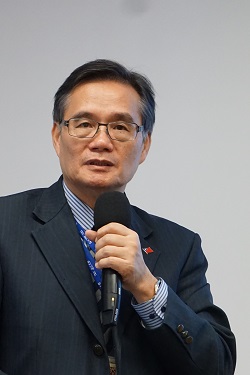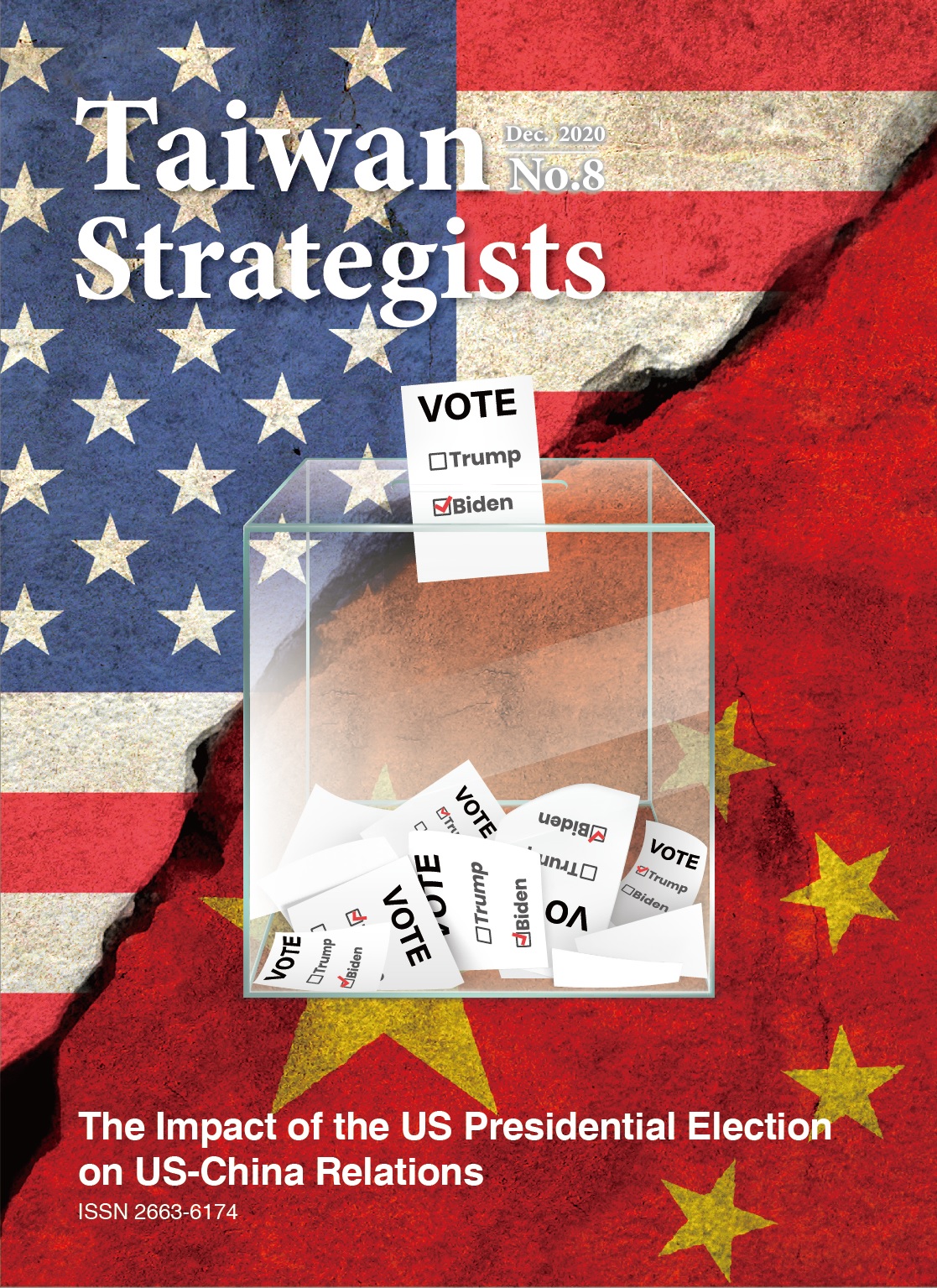The Impact of the US Presidential Election on US-China Relations
Taiwan Strategists No. 8 (December 2020)
The Future Development of U.S.-China Relations and Indo-Pacific Strategy
Director & Professor,
Graduate Institute of International Affairs and Strategic Studies, Tamkang University
This paper addresses the following questions. As Trump was defeated by U.S.President-elect Biden, what are the possible changes to Indo-Pacific strategy: goals, ways, and means? Second, what will happen to the U.S. whole-of-Government approach toward China? What will be Biden's China policy? Third, under the transformation of U.S. Indo-Pacific Strategy, what are the future U.S.-China relations and U.S.-Taiwan relations? How should Taiwan respond under new phenomena and provide what kind of strategy and policy? Finally, the author notes several important points regarding U.S. Indo-Pacific strategy and U.S.-China relations. First, the U.S. political situation will appear disordered before January 20, 2021, because Trump will not admit defeat in this presidential election. Second, there will a transformation of U.S. Indo-Pacific strategy; basically the new U.S. government will apply a multilateral instead of unilateral approach toward global politics. Finally, the new government will not change the essence of security threats regarding China's assertive international strategy, but Biden will apply more peaceful and bilateral approaches toward this emerging power.
Keywords: Indo-Pacific Strategy, U.S.-China Relations, U.S.-Taiwan Relations, Strategic Ambiguity, Strategic Clearness
U.S.-China Trade War and Decoupling from China in the Biden Era
Associate Professor, Institute of Political Science,
National Sun Yat-sen University
After the fierce and contentious 2020 U.S. presidential election, Joe Biden won for the presidency. One pressing question is whether the Biden administration will reverse Trump's economic policies toward China. Given the challenge of power structure change from China, the new American government may be left without many alternatives but to continue Trump's policies in general. But the approach is likely to be a more multilateral approach, and be responsive to the interests of allies and domestic corporate interests. In protecting its economic security, Taiwan should diversify its global economic partnership and reduce its dependence on China. Further, Taiwan should upgrade its domestic infrastructure and design effective policy incentives for global investors to invest in Taiwan, making Taiwan a high-end technology hub. Lastly, Taiwan should seek the active participation in the Resilient Supply Chain Initiative, cooperating with U.S. and its allies in restructuring global supply chains.
Keywords: Trade War, Chip War, United States, Taiwan, China
Taiwan's Strategic Role and the Future Development of Taiwan-U.S. Relations
Associate Professor, Political Science Department,
National Taiwan University
Although some of the practices during U.S. President Donald Trump's administration may be continued after President-Elect Joe Biden takes office, including maintaining close U.S.-Taiwan relations, they may be more cautious on issues such as official contacts and arms sales. However, Biden's belief in the value of democracy and freedom far exceeds that of Trump's. He will certainly not betray Taiwan, but the question is how much the Biden administration would be willing to pay to prevent the Communist China from annexing Taiwan. Biden's past remarks about Taiwan show that the U.S.-Taiwan relationship will become more constrained within the framework of U.S.-China relationship and might return to the framework of the Taiwan Relations Act with strategic ambiguity and defensive weapons. It might be difficult to see offensive weapons sold to Taiwan in the future. Taiwan will be regarded as a worthy partner, not as a card to play against China. U.S. policy toward Taiwan will continue to focus on helping Taiwan build confidence in its security, independently determine the direction of its economic development, and establish dignity and win respect on the world stage.
Keywords: U.S.-Taiwan Relationship, Biden Administration's Policy to Taiwan, Taiwan-U.S.-China Relationship, U.S. Arms Sales to Taiwan, Strategic Ambiguity





